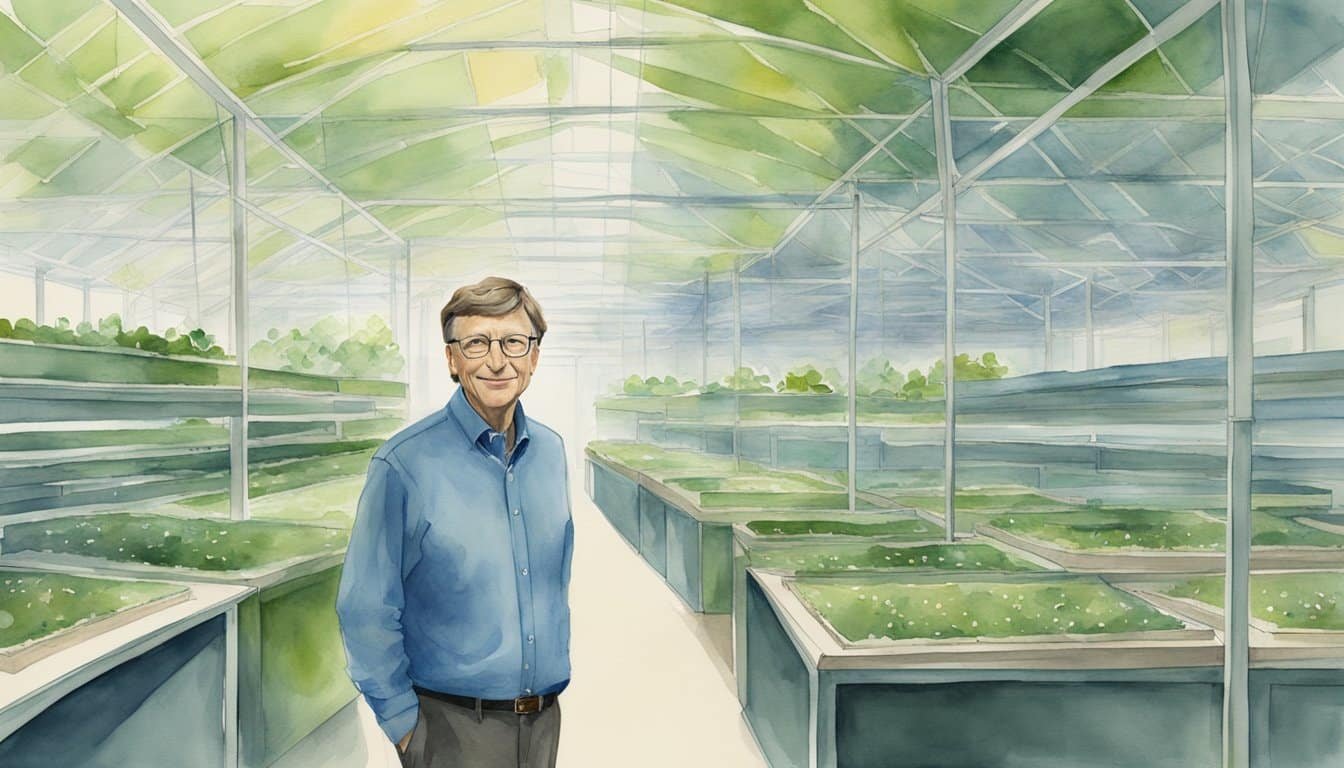Bill Gates and Mosquito Control Efforts
Bill Gates has been notoriously committed to fighting mosquito-borne diseases through innovative control efforts, including a high-tech approach using genetically engineered mosquitoes.
Inception of the Idea
The journey began with a question: how can the spread of diseases like malaria be stopped? The Bill and Melinda Gates Foundation, known for its immense contributions to global health, recognized a leading culprit in the transmission of these diseases: mosquitoes. By targeting the vector itself, the Foundation aimed to reduce disease incidence dramatically. Teaming up with organizations like the World Mosquito Program, they sought out cutting-edge solutions to an age-old problem.
Role of Oxitec and Biotech Companies
Enter Oxitec, a biotech company specializing in genetically engineered (GE) mosquitoes, designed to curb mosquito populations. These GE mosquitoes are crafted to possess a self-limiting gene, causing them to die before reaching maturity. In field tests, these mosquitoes have demonstrated a reduction in local mosquito populations. The approach has shown promise as a tool for mosquito control, impressively reducing the numbers of Aedes aegypti, the mosquito species responsible for spreading Zika, dengue, and chikungunya. With the support of the Gates Foundation, biotech firms continue to explore these technologies, pushing the boundaries of what’s possible in public health interventions.
Genetic Strategies Against Disease Transmission

In the fight against mosquito-borne diseases, cutting-edge technologies are providing innovative solutions. These strategies involve tweaking the genetics of mosquitoes to thwart disease spread, which is a fascinating development in the world of science and public health.
Genetically Modified Mosquitoes
Genetic modification of mosquitoes is a bold step towards the reduction of diseases like malaria and dengue fever. The technique involves altering the DNA of mosquitoes to either reduce their lifespan or make them incapable of transmitting diseases. A prime example of this technology in action is the deployment of gene drive mosquitoes which have the potential to spread a genetic modification through mosquito populations in sub-Saharan Africa. Scientists are also exploring strategies that allow genetically engineered mosquitoes to outcompete their wild-type counterparts, effectively reducing the populations that can harbor and transmit diseases.
Wolbachia Bacteria Use
Another intriguing approach employs the use of Wolbachia bacteria to combat mosquito-borne diseases. By introducing Wolbachia into Aedes aegypti mosquitoes, the primary vectors for diseases like Zika and dengue, their ability to pass the pathogens to humans is significantly hampered. This is not genetic modification of the mosquito itself, but rather a biological control strategy that has gained the attention of scientists and the Environmental Protection Agency (EPA) for its potential to remodel the battlefield against vector-borne diseases without introducing genetically modified organisms into the environment.
Impact and Controversies

Bill Gates’ involvement in genetically engineered mosquito projects has stirred both impactful innovations in disease control and sparked a wave of controversies. From environmental implications to public reactions, this has become a topic of significant debate.
Environmental Concerns
In places like the Florida Keys, where mosquito-borne diseases pose health risks, innovative strategies such as the release of genetically engineered mosquitoes have been employed. With support from the Environmental Protection Agency (EPA), this initiative aims to reduce the population of disease-carrying mosquitoes without relying on traditional pesticides. However, environmental groups like Friends of the Earth, represented by advocates such as Dana Perls, raise critical questions about the long-term impacts on ecosystems and the potential unforeseen effects of altering a species on a genetic level.
Public Perception and Fact-Checking
As public discourse surrounding the mosquito farm takes place across platforms like Instagram, Facebook, and Twitter, fact-checking has become essential. The Mosquito Control District often has to address misleading content and provide factual context to the dialogue. On social media, myths can spread rapidly, which necessitates a stern focus on verifying claims and ensuring the public receives accurate information. Organizations dedicate efforts to dispel inaccuracies and affirm the science behind mosquito control methods.

